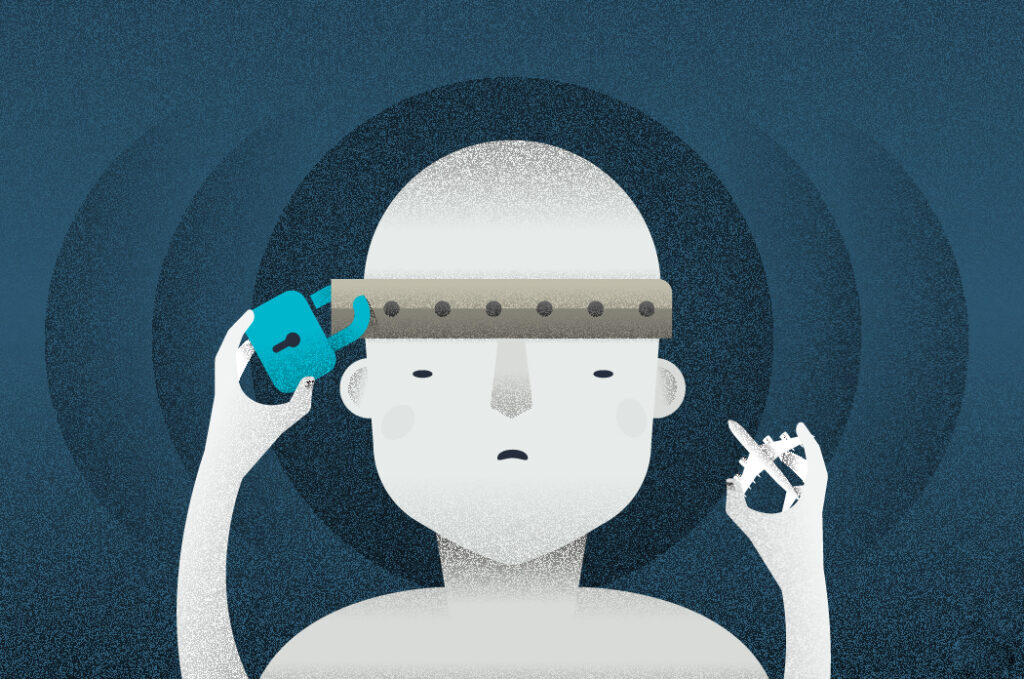
In the hectic pace of modern life, many of us feel trapped in negative cycles and struggle to reach our full potential. If you’ve ever wondered why the journey toward self-improvement seems filled with internal obstacles—even when you try hard—you’re not alone. This comprehensive article delves into fundamental aspects of psychology to reveal practical strategies for unlocking your best self. By exploring self-awareness, overcoming mental barriers, and creating effective daily routines, we provide actionable insights for balanced personal and mental growth. Grounded in both classical theories and the latest research, our advice is designed to transform challenges into opportunities for deeper well-being and personal empowerment.
Embracing Self-Awareness: The Essential First Step Toward Healthy Growth
Self-awareness is the cornerstone of psychological health and personal growth. In our fast-paced world, it’s easy to overlook the value of pausing and truly observing our thoughts and emotions. The journey to self-improvement begins by recognizing who we are, what drives us, and identifying the factors that hold us back. Understanding our internal dialogue is crucial for making lasting changes. Research consistently shows that boosting self-awareness leads to better decision-making, healthier relationships, and overall improved mental well-being.
Modern psychology reminds us that self-awareness is a dynamic process—not just introspection. It involves ongoing observation and reflection. Tools such as mindfulness practices, journaling, and therapy can help develop this skill. These methods allow you to detect patterns and triggers that contribute to stress or self-doubt. By acknowledging both your strengths and weaknesses, you build a solid base for lasting personal growth. Facing your emotions directly empowers you to take confident, calculated steps toward a more rewarding life.
Beyond individual benefits, heightened self-awareness enriches your relationships by improving communication and empathy. Understanding your feelings better equips you to appreciate the emotions and perspectives of others. Studies have shown that increased self-awareness is closely linked to enhanced emotional intelligence, leading to more effective conflict resolution and deeper connections. As you start this transformative process, remember that every small step counts. Embracing self-awareness creates the balanced and resilient foundation for all future growth.
Overcoming Mental Barriers for a More Fulfilling Life

Mental barriers such as self-doubt, fear, and procrastination can block your path to success. These invisible obstacles, often rooted in internalized negative beliefs, hinder you from achieving your goals. Modern psychology explains that overcoming these challenges requires more than willpower—it calls for a strategic approach involving cognitive restructuring, behavior modification, and sometimes professional guidance. Recognizing and addressing these obstacles is essential for evolving into the healthiest version of yourself.
Experts suggest blending cognitive behavioral techniques with mindfulness practices to overcome mental barriers effectively. Cognitive Behavioral Therapy (CBT) has proven effective in challenging irrational thoughts and replacing them with constructive beliefs. For instance, reframing failure as a valuable learning opportunity rather than an endpoint can significantly improve your mindset. Embracing vulnerability and seeking support—from professional counseling or trusted relationships—can also mitigate the impact of these mental blocks. Gradual, compassionate changes ensure the process is sustainable and genuinely effective.
Additionally, breaking free from long-held myths about your limitations is vital. By questioning and challenging these internal narratives, you diminish their grip on your behavior. Adopting a growth mindset turns perceived weaknesses into strengths. Cultivating psychological resilience is also about setting realistic goals, celebrating small victories, and adjusting strategies as needed. This comprehensive approach reinforces that self-improvement is a grounded, step-by-step process that enhances your long-term mental and emotional well-being.
Cognitive Behavioral Strategies
Techniques derived from Cognitive Behavioral Therapy (CBT) can help you pinpoint negative thought patterns and replace them with positive, actionable ones. This method has effectively reduced anxiety and depression symptoms, paving the way for greater resilience. By persistently challenging negative cognitions, you gradually shift toward a mindset of growth and positivity.
For example, maintaining a thought journal to record, analyze, and rewrite negative thoughts can transform how you perceive challenges, reducing stress and fostering a kinder, more forgiving attitude toward yourself.
Mindfulness Techniques
Mindfulness is about staying fully present and aware of your thoughts and emotions without judgment. This practice reduces the influence of mental barriers by allowing you to observe and understand your thought processes in real time.
Simple methods such as mindful breathing or observation meditations help center your focus, making it easier to break free from entrenched negative patterns.
Building Resilience with Practical Psychological Techniques

Resilience is essential on the journey to unlocking your best self. It is the ability to bounce back from setbacks and adapt to new challenges. Contrary to popular belief, resilience is not an innate trait but a skill that can be developed with deliberate practice and the right mindset. Building resilience turns obstacles into opportunities and transforms setbacks into stepping stones for growth.
Various strategies—such as stress management techniques, adaptive thinking, and structured routines—play a critical role in fostering resilience. Regular physical activity, a healthy diet, and robust social connections also contribute significantly to a strong mental state. Integrating these lifestyle habits with proven psychological techniques creates a balanced approach that not only helps you face life’s challenges but also ensures you emerge stronger each time.
When you nurture resilience, your personal narrative shifts. Setbacks start to appear as temporary obstacles rather than insurmountable failures. By embracing failure as a vital part of growth, you develop a resilient mindset that values learning from adversity. Numerous case studies support the idea that individuals who actively build resilience are more likely to succeed in all aspects of life.
Integrating Mindfulness and Positive Habits into Daily Life
Mindfulness is more than a buzzword—it’s a practical tool that can transform your daily routine. It means actively focusing on the present and noticing your thoughts without judgment. Research links mindfulness with improved cognitive flexibility, reduced stress, and better emotional regulation. Daily practices like meditation and mindful observation can significantly boost your overall quality of life. Integrating mindfulness into your routine paves the way for healthier personal growth.

Building positive habits requires clear planning and consistent practice. Begin by setting small, achievable goals, such as spending ten minutes each morning in meditation or scheduling regular breaks during the day to reconnect with yourself. Over time, these habits become second nature, reinforcing psychological well-being and equipping you to handle stress with calm and clarity.
The benefits of mindfulness extend beyond personal care to enrich your work and social life, fostering empathetic and effective interactions. In a world where stress seems ever-present, centering yourself with mindfulness is key to leading a more balanced life. Whether at home, work, or within your community, daily mindfulness nurtures resilience and lays the groundwork for transformative growth by embedding positive habits.
Practical Mindfulness Exercises
Begin your day with a simple breathing exercise: inhale deeply through your nose, hold for a few seconds, then exhale completely. Repeating this calmly centers your focus and induces relaxation.
Another effective exercise is mindful walking. Focus on the sensations in your feet, the rhythm of your steps, and the ambient sounds around you. This practice extends mindfulness throughout your day.
Positive Habit Formation Strategies
Select one small habit to commit to daily and monitor your progress using a journal or mobile app. Tracking your efforts reinforces positive behavior.
Reward yourself for consistency. Positive reinforcement is a key strategy that encourages the maintenance and growth of healthy habits.
Content Additional: Advanced Strategies and Future Perspectives
Beyond foundational strategies, advanced psychological tools can further boost your personal development. Neuroplasticity—the brain’s inherent capacity to change—provides a scientific base for many of these interventions. New research indicates that regular mental exercises not only increase cognitive flexibility but also foster a profound sense of empowerment. Harnessing your brain’s adaptive abilities is a powerful way to accelerate your journey toward becoming your best self.
Techniques such as deep meditation, visualization exercises, and biofeedback therapy have shown promising results. These advanced methods help you gain finer control over your emotional responses and build a mental framework that adapts well to stress. As technology increasingly intersects with mental health, apps and digital platforms now offer guided exercises, community support, and real-time feedback to revolutionize your daily mental health practices.

The evolving dialogue in the psychology community underscores the importance of personalized mental health strategies. Tailor your approach to match your unique psychological profile, whether through traditional counseling, self-guided learning, or technology-driven tools. Individualized approaches maximize the impact of psychological interventions, ensuring sustainable and healthy growth. Standing at the forefront of modern psychological research, the opportunities to unlock your best self have never been more exciting or accessible.
Unlocking your best self requires ongoing commitment to learning, self-reflection, and adopting healthy mental practices. In this article, we’ve explored key psychological insights, strategies for overcoming barriers, and simple daily habits that boost healthy growth. By embracing self-awareness and resilience, you lay the foundation for true self-improvement. Remember, personal growth is a continuous, rewarding journey. By incorporating these practices into your everyday life, you are paving the way for a fulfilling, balanced, and mentally robust existence. Start today and commit to evolving into your healthiest, most vibrant version.




